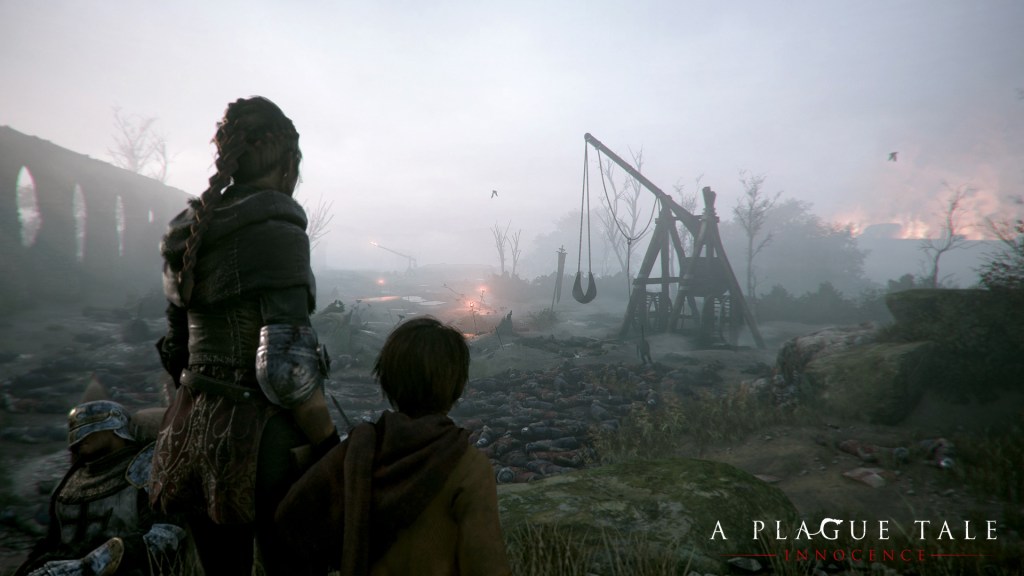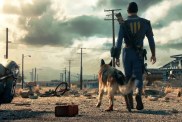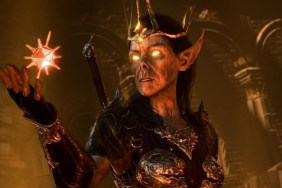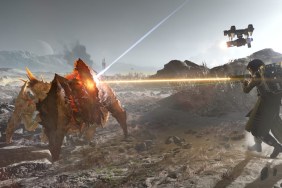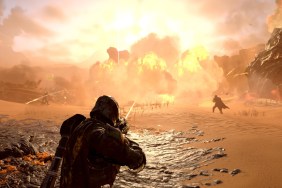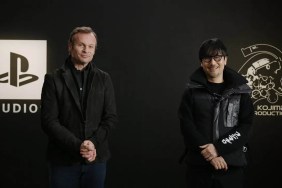During our time at Focus Home Interactive’s What Next event, we spoke with Creative Director for A Plague Tale: Innocence, David Dedeine. He had a lot to say about crunch, working conditions, trophies, and the troubles of developing games. A Plague Tale is a narrative driven adventure game, with an emphasis on the relationship of two siblings, Hugo and Amicia.
It has gone gold and is planned for a May 14, 2019 release date.
Joseph Yaden: With Plague [Tale] what are some inspirations you draw from during the development process? Do you look at certain games and say “I wanna grab that”? What are some games you look at [for inspiration]?
David Dedeine: There [are] games and there are books and movies, and animations. At the very root of the experience, even before the rats, [the main focus] was the relationship between Hugo and Amicia. And we put them in a context where there is a friction with the brutality of the world.
And for this reason, one of the sources of inspiration is a technique from Graves of the Fireflies. It’s a Japanese animated movie, [like a] Ghibli [sort of film]. It’s [about] two kids just after the end of the war. The way they speak, the brutality of the adult world in front of kids even in such a terrible moment of the story was a great source of inspiration. Maybe not for the story, but for the fuel of the relationship [of the] two main characters.
What about games [you’ve drawn from]?
I would [be lying] if I did not mention The Last of Us, obviously. It’s such a great game, but it’s weird to claim that we’ve done the same thing. And that’s not the case — we wanted to do something different. What I’d like to say about The Last of Us is that I like the way it has opened doors even for the publishing world. Because it’s this type of experience that — I’m not so sure we would have found a publisher like Focus to create this type of experience. If not for [The Last of Us] demonstrating that it’s possible to have a very narrative driven experience. Or at least, [with] this very strong relationship without a [necessarily] happy ending.
I know development can be very complicated and a lot of times there are a million ideas and you want to use all of them and obviously you can’t do that. What were some ideas [Asobo Studio] had that had to get cut?
[Laughs] We wanted to push the basic abilities and [wanted them] to go much further. We had to cut this [in order to] be honest and sincere with our characters, because it was damaging their relationship too much. It’s bizarre, but it was the case. [What we had] was being experienced too much like a robot. We wanted it to [have] obviously, a natural character. So we had to give Hugo back more freedom. We had interesting gameplay breaks coming with this idea, especially at the beginning of the experience. Even with the nature of this relationship, it wasn’t working on a physiological and emotional layer.
It was [impacting the] gameplay. Because when you can give more orders it [feels] too much like a robot, exactly. “Do this, go here, grab that.” It was not natural. Even in real life, with natural language, it would not happen like this. So we were not able to transform the gameplay into something which was organic and it was damaging the overall balance of the experience. It was sad, but we had to admit that [removing the different abilities] was a good move.
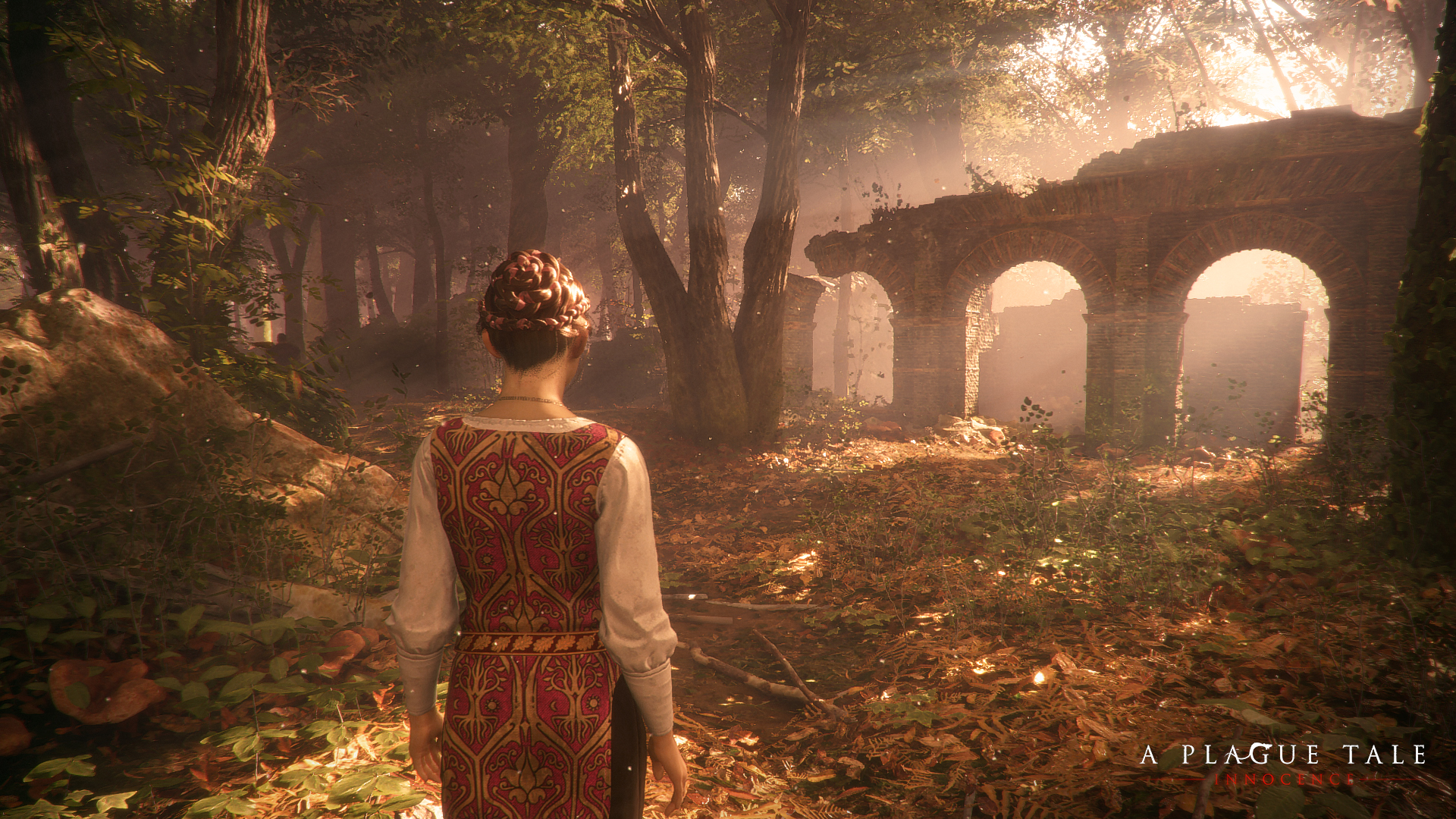
With that idea in mind, of working really hard on something and it [not working] out, how does that impact the timeline of development? That sort of pushes you into crunch, doesn’t it? And if it does, how do you handle crunch?
Because we’ve had very bad experiences in the past with this, especially on Fuel, we were in this sort of “garage-like” culture. Some people were sleeping at the office and it lasted way too long and we damaged the team. We know it’s not something that is good for a team, or company. At least it needs to be used [in a productive way]. Because I don’t believe that we can achieve what we’ve [done] without this final straight line.
It’s a little bit like doing an 800-meter race. If you start sprinting right [from] the beginning, [the team will experience burnout] but you can’t win without the final straight line at the end, either. The reason why is that, until a certain moment, you cannot really polish the game. And even sometimes, the psychology of humans is — when you know you have no time, and you know you need to converge, there is this magic moment [that’s] hard to explain.
There is an alchemy that makes everything [happen] and suddenly you find the right solution. It comes from pressure, so we need deadlines. At some point you realize that you can do better and [developers] want to do crunch. We are not doing milk or tires — we are doing something we care for and when you have a love for the thing you’re doing [people work hard]. Obviously, we stay within the law, because in France, the law is very protective of that.
We know it’s not a good thing to start [crunch] too early, because you basically burn the team. It’s the worst thing that could happen. You need to keep the team in good shape as long as possible, but when the straight line is there, we push the crunch button. Only [during] like, the last three months. It’s very limited and very much at the end.
You know, the family is not happy, the wife is not happy, the kids aren’t happy. And we have to be honest that it’s not a lovely story all the time. But at the same time, believe in ourselves as artists. At some point, you just want to do your best for the objective you’re doing. I see it as a natural thing at some point, as long as you stay in the law.
So are you saying you don’t think [development] is possible without crunch?
It’s hard to say that because I know how that could be read, you know? I’m not this guy who wants to be blind to the problem. And like I said, we’ve experienced that in the past and we didn’t wait for the rest of the world or the government to talk about it. We realized it’s not a good thing, in general. But at a specific point of the project, I believe there is magic happening. Is it impossible [to develop games without crunch]? No. Will the team and the public enjoy the product more? No, they will not. It’s not because we will not do crunch that games will be better.
Think about the writers. Do you think a writer can only work on their book seven hours a day? No, if you’re a writer I can guarantee those guys are actually writing at 2 in the morning. And sometimes it’s completely not reasonable. As most of the team is based on artists — in the sound, music, in the dialogue, in the game design, all of that — at some point you just want to make the best thing and you don’t think about the time.
It’s best to be paid for your crunch time, [though], which is different. Okay, people work more but they are paid more. And sometimes twice [what they normally get paid]. It’s also an investment for the company. So as soon as we are in good respect with the team and the law, and you’re working in a positive ecosystem [it can work out].
It also depends on your definition of crunch. If crunch is unpaid all the time and [destructive], I’m not for it. [Laughs] If it’s paid, and in most cases, people volunteer to do it, it’s normal and [within] the law. So there is not even a discussion in this case.
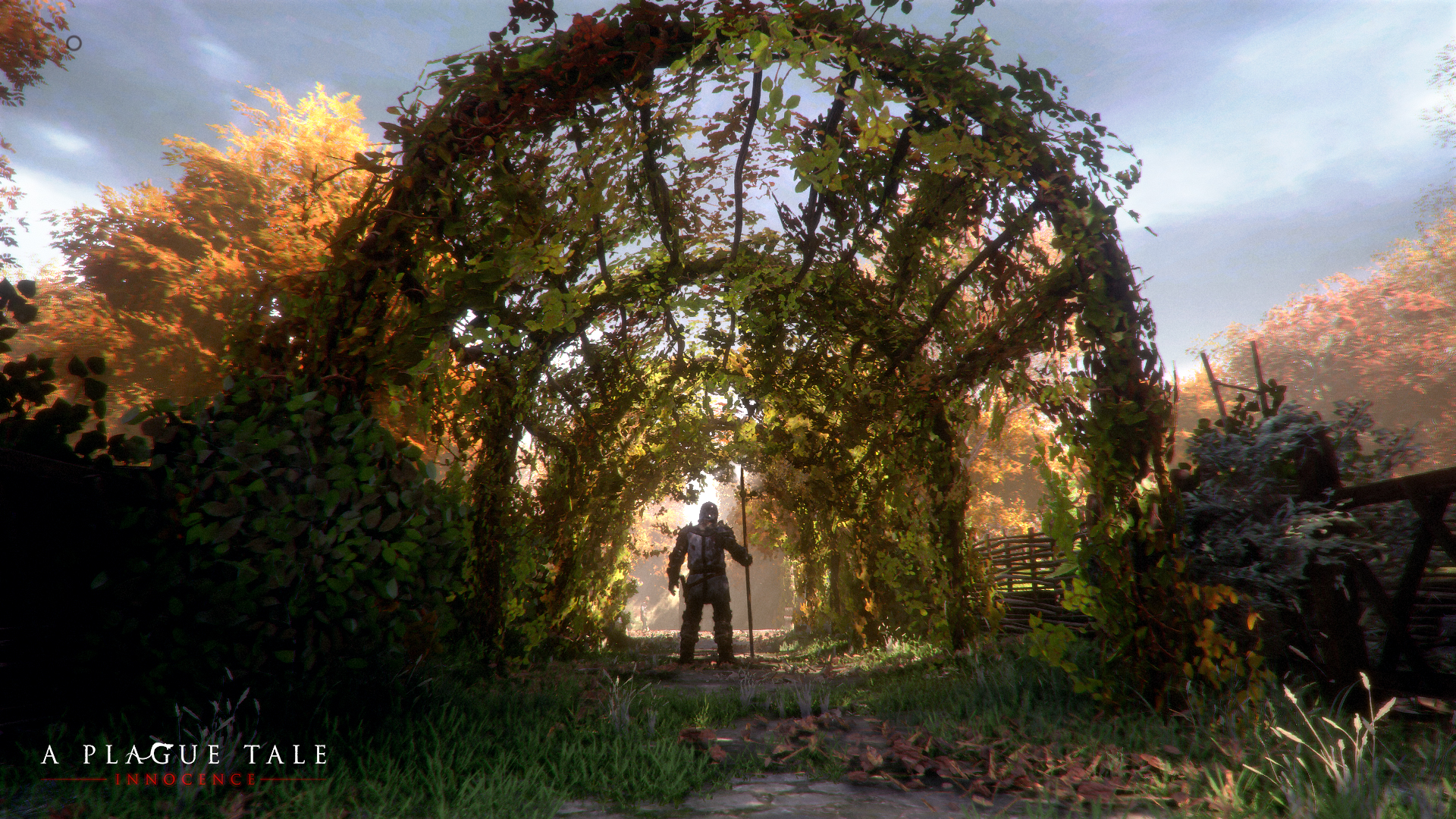
The reason I bring it up is [because] there is a lot of talk about crunch in the industry right now. I talked with the Farming Simulator devs and they said they don’t really [have crunch]. I was expecting it to be a very common thing, but to hear them talk about it and hear them say they plan everything out to avoid crunch, is very interesting. Especially after hearing you say it’s necessary. It’s interesting to hear two totally different ideas about it. And you seem like you’re [pro-artist] and for the creative side of things and running on passion. And I talk to [Farming Simulator] devs and [development seems] very organized and maybe they have passion, too.
I don’t want you to believe that crunch comes from a lack of organization or lack of money. If this were the case, the industry would have decided that it costs way too much and would have removed it for cynical reasons. So, if crunch is still there, it’s not for reasons [of greed]. It’s because at some point in the project, there is something magical happening. It’s hard to explain, I agree. And I’m sorry to not be more explicit about it.
I agree it’s interesting. Because when you were talking about Farming Simulator, I was thinking, maybe they are not in the same stage [as us] either. They know their formula.
That’s totally fair. You two are making vastly different games. Theirs is annualized and it’s very different. But before I started talking with them, I had this idea that everybody crunches and that it’s a common thing. But to hear that they don’t crunch, [had me] kind of surprised.
Talk to me about your development tools and [whether] they work against you sometimes or if your team has trouble with them. That can sometimes put you off schedule, as well — if your programs are just not cooperating the way you want them to. Does that happen a lot? How does that work?
Every time it doesn’t work, it’s because you haven’t been bright enough to anticipate. And it happens all the time. Even if you have the most experienced and talented people, when the magic happens, suddenly you realize that things [could be] working better than expected. Then [you’d] want to do more with it, and you realize that in order to push the idea [further], you need to develop something special.
And then, suddenly, this was not planned and you’ll need to do some sort of trade-off. At the end of the day, this is a good decision and sometimes you need to adapt, which is normal. Every developer is different. Otherwise, we’d plan everything beforehand. I would say we played on the strengths we had. It’s all on one engine and we have no dependencies with other games and we don’t have to wait for tickets. We can directly talk with the technical director to [request things].
For example, the rats [in Plague Tale]. Without the opportunity to modify the engine works directly, dedicated to this game, we wouldn’t have moved forward as fast. That’s a good example of the tool [being] your friend. But at some point we also realized that during the vertical slice [shown during the demo] our tool was not [as useful] to make enough definition on the ground or soil.
It’s funny because since [Plague Tale] is during the middle ages, you don’t walk on a street. And we were not so much in a classical architectural buildings, so we needed something to keep the world organic. And with the previous version of the tool we had, we were losing lots of time. So at this stage of production we had to accept [that we’d] lose a little bit more in order to have a step back and build what we needed. And actually, when we came back, it was just perfect because the tool we have is prevalent and has saved a lot of time.
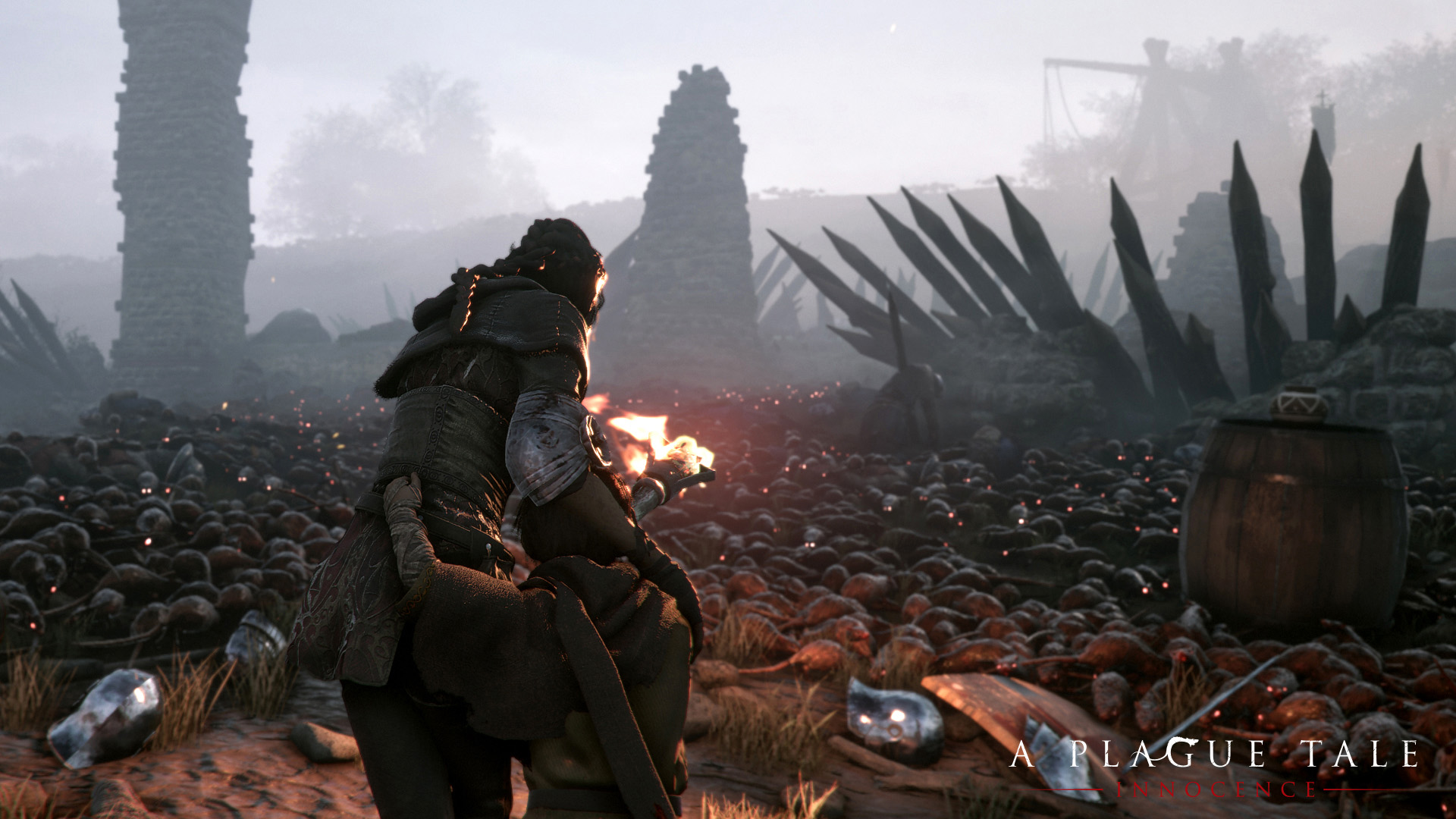
And at some point you realize that you have to cut stuff because [including it] is not going to be worth it. You have this grand idea like, “Oh, the ground is going to move a certain way,” but how many people are actually going to care about that? I don’t know. Maybe they will or maybe they won’t, but you have to weigh that against how important it is to the overall vision, resources, and time. The idea of all that really fascinates me — what things [developers] pick to eliminate, what things they spend all their time on and end up having to cut. It’s something that people don’t think about a lot, [but] I know you guys think about it all the time.
It’s funny because there is this old example: There was this idea that came day one that works and was easy to implement. That’s the idealistic scenario. And sometimes, maybe not even an idea, but, a mistake, which happens at the very end of the project actually turns out to be cool. But then you make it and there are actually a lot of problems with it, but we find a way [to make it work].
Obviously, we have something very structural in terms of where we want to go and what [the main beats are] in terms of story. We have a list of takeaways for every single story beat. We also have tools to evaluate the pacing on different layers. Emotional layer, gameplay layer, even the color palette. It’s at the same time, very organized because you have to be when it turns into a mess. [Laughs] Because otherwise, you will not be able to react appropriately.
To give you a another example of disorganized organization is [that there needs to be] room for things to be removed. You need to be optimistic but you need to be prepared for the worst. So at some point when we were writing the story we reserved moments that we knew could be removed.
If at some point, you are forced to cut something, but realize that [if you do,] the whole thing will be destroyed, you are in big trouble. So you prepare way before, [just in case] there are areas you need to remove, because otherwise, you’re in trouble. And some of [that] has been activated with [Plague Tale]. And you’d never realize, because you will not miss it since you didn’t even know it existed.
There is a full chapter that is not in the game, for example.
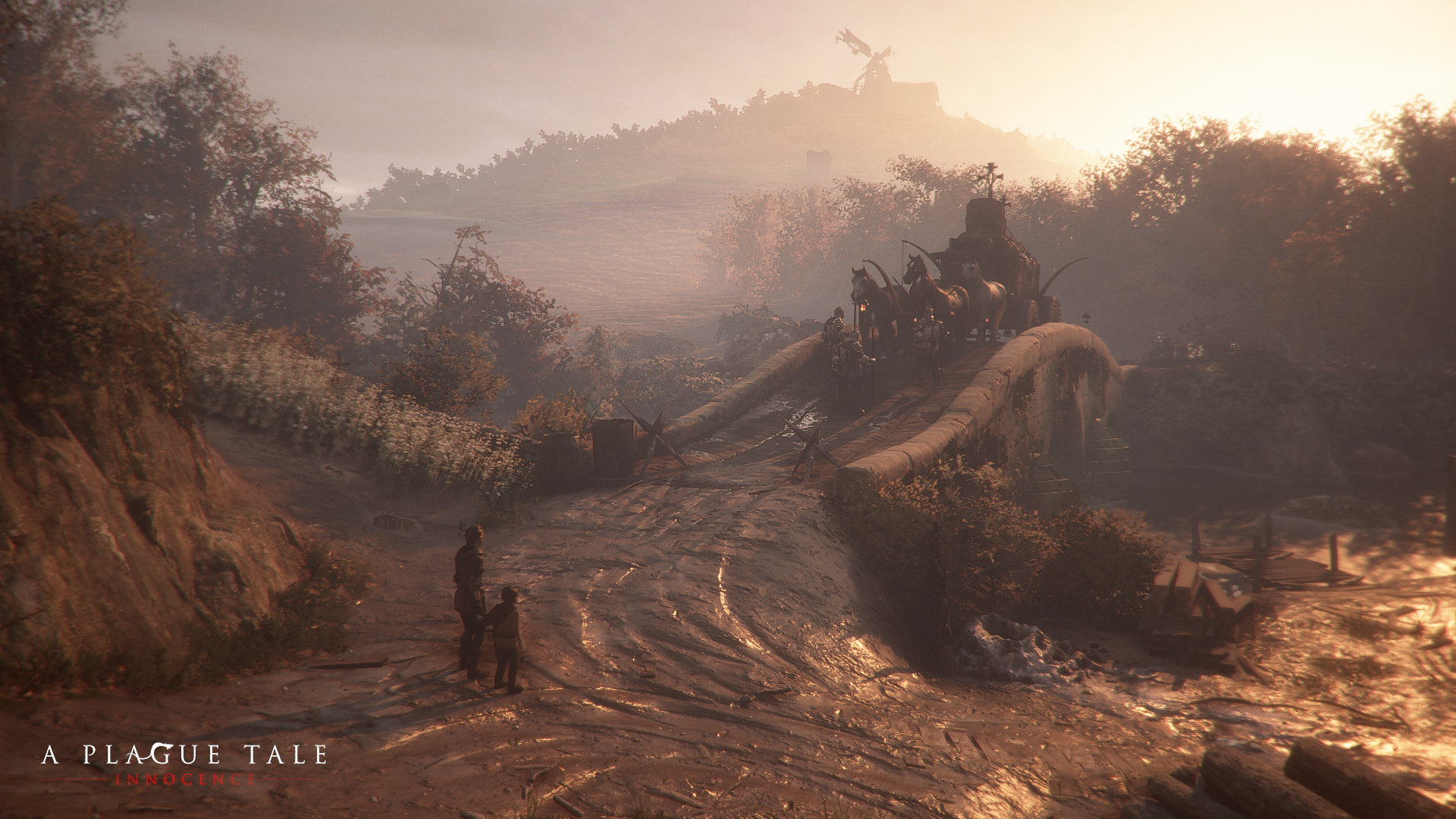
Maybe DLC?
Yeah, sure. [Laughs]
When working with Focus, say you got to the point where you realize that you’re going to need more time. How would that go down? Describe a [situation] in which you’ve announced your release date and then something messes up and [you need more time]. How does that conversation happen with Focus? Is it something they’d be negative towards? A lot of games get pushed back and I want to know how that works behind the scenes.
It’s actually pretty simple. If no one believes in the game, nobody will add money to it because they already know it sucks. You can put a [pile] of money on top of it and it will still not be good. So most of the time, you’ve [shown the fact] that [your game] is good.
But to make it good in all aspects, and to make it stronger, we realized that we were going to need more money and time to trigger the full potential. It’s a very data driven discussion. We know if we go to market with this experience, like in our case, we knew we could [launch] sooner, but we knew we would not have the full potential of what we could do. We have demonstrated that it could go further.
At some point, it’s a rational discussion. They can put more money into it but it has to be worth it. If the game has demonstrated that it can, with more time (basically money) do better, it’s worth [the trouble]. Obviously, it’s black and white. There are lots of levels of grey in between — you never know. Producing a game is always a bet. But that’s the way the discussion happens.
And it sounds like Focus is pretty reasonable about it, right?
Honestly, they’ve been awesome. They’ve [given] us huge room for creativity. It’s interesting because it was really our game and they let us do what we believe in. And sometimes, they even pushed us to stick to the plan. Like, even if it was hard, or if a scene was not working, and we were trying to force [things], Focus kept us on track. There were times [in the beginning] when we weren’t honest with the characters. And [Focus] realized this and said “Are you sure you’re being honest with the story you want to tell?”
They have this advantage of taking a step back, so when they said that, we realized they were right. We realized there was room to improve.
Talk to me about trophies in the game. I write for PlayStation Lifestyle and we’re engrossed in the trophy ecosystem. It’s very important to a lot of players what a game’s trophies look like. How does Asobo know what to do with the trophies? Is this something you spend a lot of time with? I know a lot of people will choose whether or not to buy your game based on what the trophies are like. It’s important to a lot of people.
Yeah, I know that for me, it depends on the game. But it has been driven a lot by the team itself. I like it because the story and the main arch of the game needs to be made by a few people because you need to have a homogeneous vision to know exactly where [the game needs] to go. For the trophies there are lots of details within the levels that sometimes, only the level designer knows [about]. There are lots of hidden details that only [the level designer] knows about.
[A Plague Tale] is not so much about branching [paths] but there are points in which you can choose whether or not to save people and there are trophies based on that. What I don’t like is when a game’s trophies force you to play in a way that is opposite to the character’s psychology. I like it when trophies [make you] explore something unexpected but which stays within the roots and DNA of the game.
I know we have lots of trophies that are like “Have you played Amicia the way she would have acted in real life?” For example, we have a trophy for saving someone or not. I like it because it’s an Amicia trophy. Amicia would have validated it, you know?
Does your game have a Platinum trophy?
Yes, it does.
The reason I ask is because a lot of games don’t have that and I don’t understand. Usually the AAA games will have a Platinum trophy. Sometimes, smaller indie games don’t have [one]. But then some of them do and it’s very weird. For example, Hitman (2016) — huge game, but no Platinum trophy. Why? I don’t understand. Do you know how that works? Coming up with a Platinum trophy? Do you just ask Sony?
I have no explanation for that, I’m sorry. Honestly, I don’t know. For me, there is no hidden reason to not do it. There is no complication or technical reason for not doing it. The thing I know is that at the end of the day, it’s “game first”. And there comes a time when you have to do a trade-off. Obviously, you’d make trophies a little bit more simple in order to save time for the coders and to focus on the game itself. That’s probably what happens.
We’d like to thank David Dedeine for taking the time to speak with us, and Focus Home for the travel and accommodations for the What’s Next event in Paris.
